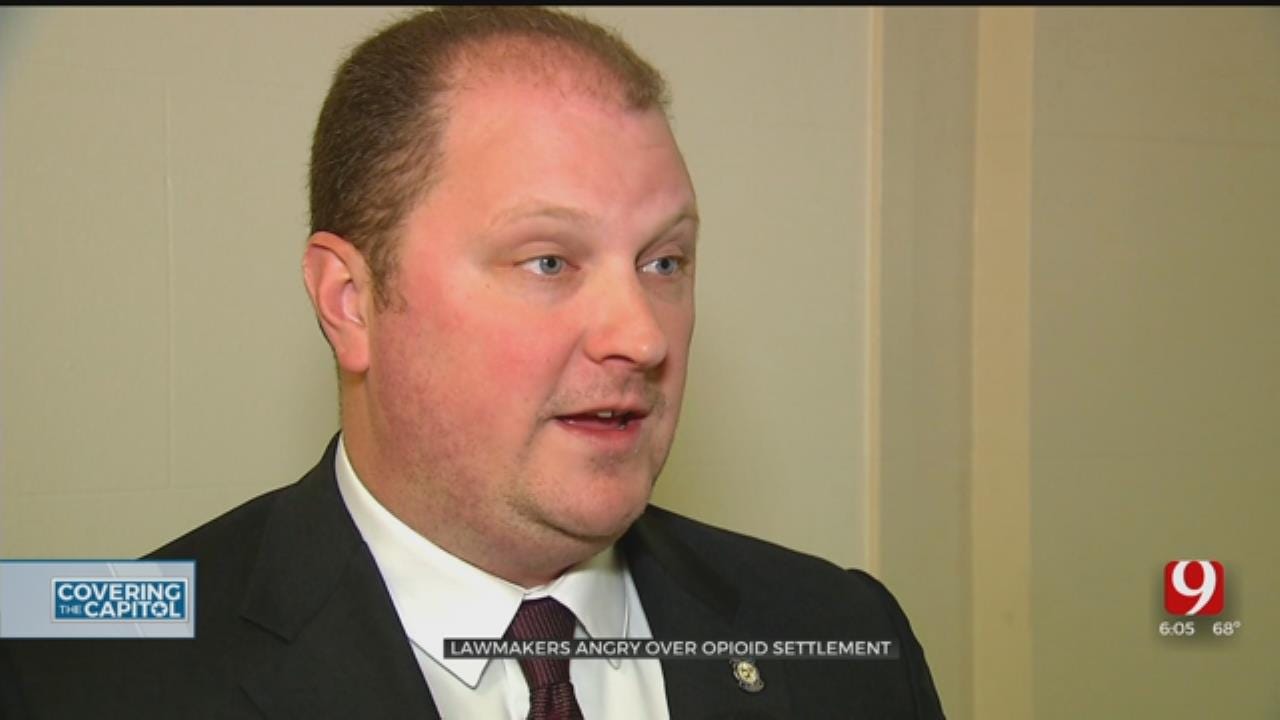State Lawmakers Upset About How Opioid Settlement Money Is Being Monitored
The state attorney general is facing questions again after agreeing to a settlement with an opioid manufacturer. Lawmakers have concerns about how the money is being monitored. About $177 million from the Purdue settlement would go to a new foundation forTuesday, April 2nd 2019, 7:14 pm
The state attorney general is facing questions again after agreeing to a settlement with an opioid manufacturer. Lawmakers have concerns about how the money is being monitored.
About $177 million from the Purdue settlement would go to a new foundation for the OSU’s Center for Wellness and Recovery. Until that foundation is set up, and we don’t know how long that will take, the money will be overseen by three people who don’t have to answer questions about the cash.
“These folks that have been put in the position to now oversee $200 million of the people’s money are non-elected persons that have been asked to do something that’s not their purview, said Representative Jason Dunnington (D) Oklahoma City.
See Also: State Lawmakers Questioning Attorney General’s Opioid Settlement Decision
And that’s raising some eyebrows at the State Capitol.
Attorney General Mike Hunter agreed to a settlement without first consulting the legislature, then set up what he calls a “Bridge entity” to oversee the money till the foundation is set up.
“I’m still trying to dig to the bottom of how does this work. So, this so-called bridge entity made up of three Oklahomans, they’re all prominent Oklahomans, but I want to make sure the legal authority exists and I want to see what kind of safeguards there are,” said Senator Greg Treat (R) President Pro Tempore.
The three members of that bridge entity are businessman Bob Howard, who served on the Oklahoma Commission on Opioid Abuse, Doctor Kayse Shrum of OSU and Kelly Dyer Fry, the publisher of the Oklahoman a longtime advocate for treating addiction.
“It was an important step to take but nobody should view that as something that lacks checks and balances,” said Hunter.
Hunter’s office says the entity will ensure money from the settlement lands in the right spot. Hunter, we are told will be in regular contact with the three.
Majority Floor Leader Jon Echols says he didn’t even know about the entity until we told him.
“This will be challenged in court. Inside the agreement there is a requirement that the state would pay all the money back to Purdue if it would for any reason be overturned. It is very concerning that this bridge entity not spend any of this money. The way that this settlement was written, it was written in a way that would circumvent the process,” said Dunnington. “I just think that that’s a questionable practice. And something that there may be an answer for but let’s get those answers.”
Representative Dunnington says he’s surprised that, at a time when so many lawmakers ran on transparency, there’s so little with this deal.
Hunter says he believes the foundation can be set up to include transparency.
Read Related Story: Washington Post Explains National Impact Of Oklahoma Opioid Settlement
More Like This
March 10th, 2020
March 9th, 2020
Top Headlines
December 26th, 2024
December 26th, 2024
December 26th, 2024
December 26th, 2024













